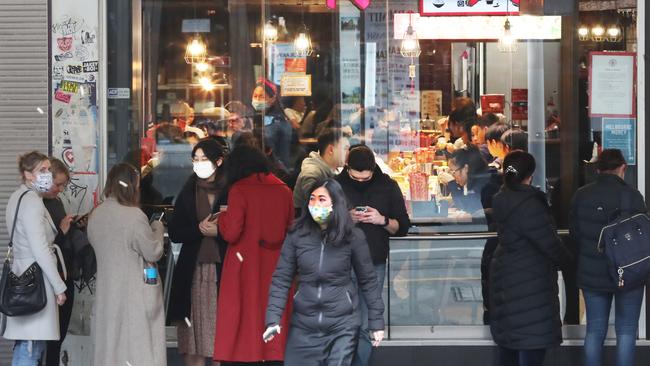93 Vic firms collapse in June as lockdown bites
Builders and retailers among 93 corporate failures in Victoria over the past month as the state’s economy grappled with Covid-19 restrictions. See the list of June insolvencies.
Business
Don't miss out on the headlines from Business. Followed categories will be added to My News.
At least 93 Victorian businesses entered insolvency and administration in June as the state’s economy grappled with the latest lockdowns in response to the outbreak of Covid-19.
The early data from the Australian Securities and Investments Commission list reveals a slew of Victorian business losses.
The toll comes after 107 Victorian businesses collapsed in June last year.
However, industry experts stress the full figure will likely be revealed in coming weeks as late filings add to the figure.
The data showed construction companies continuing to crop up in serious numbers, with some casualties having survived 40 years in the same family before falling in June.
The June figures also revealed corporate casualties of a long running legal fight over the wine in a can brand, with a court ordering the wind up of two companies caught up in the fracas.
However, the June figures come after 125 businesses collapsed in May of this year.
KPMG Asia Pacific Head of Restructuring Peter Gothard said he was perplexed by the continued low number of business insolvencies despite the end of many supplement payments.
“It’s a similar experience in Asia and Europe, the number of insolvencies is well down,” he said.
“The reason for that is the government stimulus in all its forms has been very effective in protecting business.”
“Second is you’ve got very low interest rates which we‘ve had for some time and will have for some time. It makes it a lot easier to service debts.”
Two entities linked to the Wine in a Can business featured in June’s corporate toll after Japanese company Daiwa succeeded in efforts to order a wind-up.
The move came after a five year court battle in the Supreme Court by the entrepreneurs behind the business, Greg Stokes and Steve Barics.
The move comes after the business was sold off in 2019 and marks a simplification of the corporate structure.
June also saw the Australian arm of the Brooks Brothers retail chain liquidated after going bankrupt in July last year.
The menswear business announced last year it would permanently close more than a quarter of its 200 stores globally as work from home orders quashed the need for new suits.

Revive Financial liquidator Jarvis Archer said Covid-19 and lockdowns remained a threat to many struggling businesses.
“Business owners impacted by Covid-19 now have to deal with significant arrears as well as trying to meet ongoing rent payments, despite reduced turnover.,” he said.
“While there have been mixed responses from landlords toward impacted businesses, now rent relief has ended, landlords are looking to recover arrears and return tenants to complying with lease agreements.
“The new wave of lockdowns across the country will see further impact on already struggling businesses. With no further Federal Government stimulus expected, it appears up to the states to determine what, if any, financial support they will offer.”
Mr Archer said various sectors remained heavily impacted by the pandemic particularly hospitality, international tourism and entertainment, while the construction industry was becoming a victim of its own success.
“For hospitality businesses that have seen trade recover, reduced staff availability has led to increased overtime for existing staff, driving up costs and reducing profit margins,” he said.
“Meanwhile, significant delays and price increases for building materials are causing serious difficulties in the construction sector.”
Creditorwatch CEO Patrick Coghlan said he expected most businesses to survive the next two to three weeks of lockdown despite the end of pandemic protections.
“Covid has forced business owners to be a lot more efficient.Overall it’s been a really big seismic shift for businesses, they know how to operate in this uncertain future,” he said.
Mr Coghland said he didn’t expect to see a growth in business failure numbers until banks and the Australian Taxation Office started taking concerted action.
“The fact is we’re still operating in this synthetic environment where there’s all this additional liquidity in the market and everyone is very much team Australia,” he said.
“The ATO and the banks, they are responsible for a large percentage of court actions which lead to wind ups and administrations.”
“Until we start to see the banks and ATO head back to their normal collection rhythms we’re going to be at these reduced figures.”



